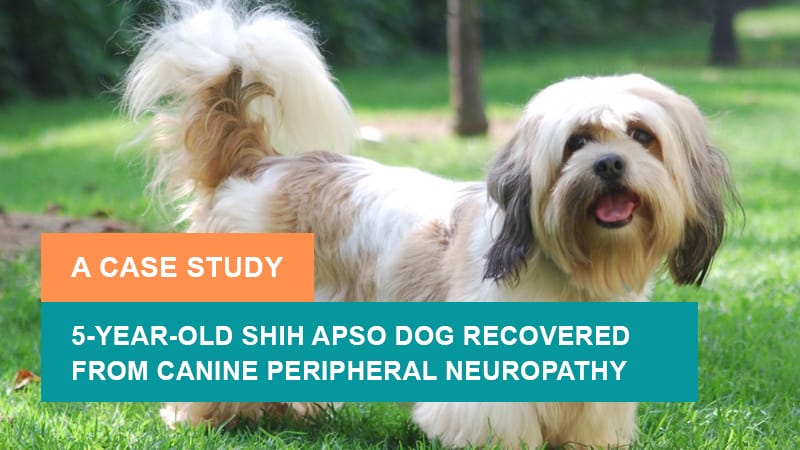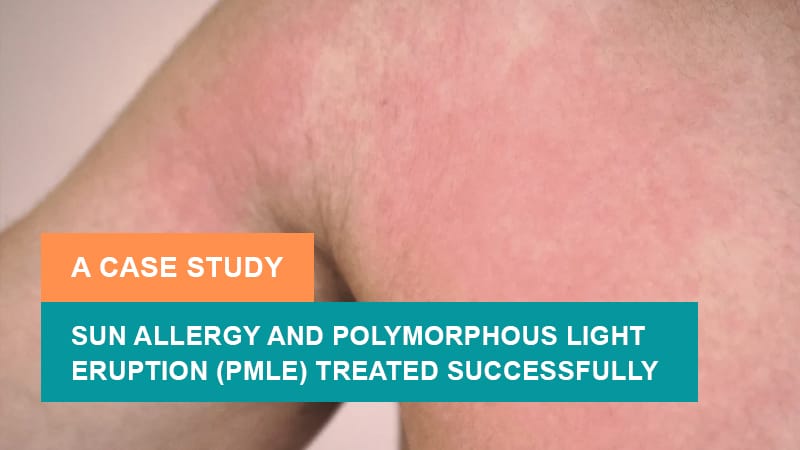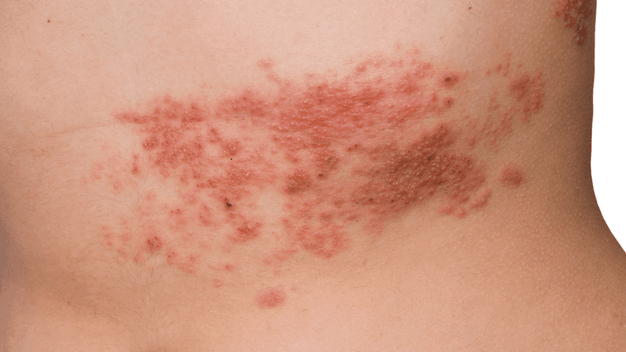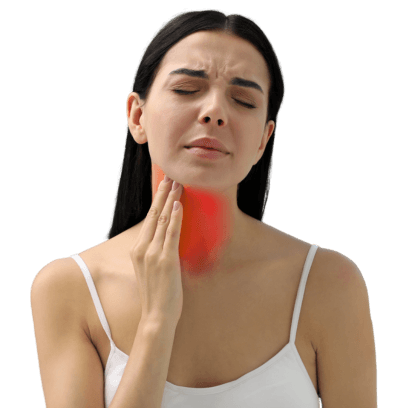On This Page
Summarise this article using AI
Introduction
Are you suffering from unexplained weight gain? Are you suffering from fatigue, dry skin, or persistent cold intolerance? Do you often feel sluggish, or depressed, or notice the thinning of hair?
If so, you might be dealing with Hypothyroidism, a condition where the thyroid gland fails to produce enough hormones in the body which results in slowing down metabolism and affecting the overall health of the individual.
Hypothyroidism is a common endocrine disorder, which is seen all over the world, resulting from insufficient production of thyroid hormones. Hypothyroidism is primarily linked with iodine deficiency in the body or due to autoimmune disorders like Hashimoto’s thyroiditis, or hormonal imbalances.
Ayurveda correlates hypothyroidism with abnormality in Jathara Agni, Dhatwagni, Kapha-Vata imbalance, abnormality in Rasavaha, raktavaha, Medovaha, Shukravaha, and Manovaha Strotas. Along with this weak digestive fire (Agni Mandya) leads to a sluggish metabolism and toxin accumulation (Ama) in the body.
Ayurvedic treatment of hypothyroidism focuses on detoxification therapies (Panchkarma) like emetic therapy (Vamna), bloodletting therapy (Rakta Mokshana), use of various herbs and formulations made from them like Kanchanar Guggulu, and different dietary and lifestyle modifications. At IAFA Ayurveda, Dr. Sahil Gupta provides the best-personalized treatment to manage hypothyroidism effectively, promoting the overall well-being of the individual.
What is Hypothyroidism?
The common condition of thyroid hormone deficiency is known as Hypothyroidism. Hypothyroidism can occur because either the thyroid gland produces insufficient thyroid hormone or due to abnormal hypothalamus or pituitary gland function. It is a common endocrine disorder that at a cellular level affects the body’s metabolism and virtually can affect any organ.
It is a generalized slowing down of the metabolic process and presents a broad clinical spectrum ranging from an asymptomatic condition to a subclinical condition with normal levels of T3 (triiodothyronine), T4 (thyroxine) along with mildly elevated levels of serum TSH to an overt state of multi-system failure or end-organ effect, etc.
What is Hypothyroidism – As Per Ayurveda?
As per the father of medicine, i.e. Acharya Charaka, not every disease that manifests needs to have a certain name, important is to better understand its pathogenesis (Samprapti). Hypothyroidism is one such disease for which no specific term is mentioned in Ayurveda, but it is better understood with abnormality in Jathara Agni, Dhatwagni, Kapha-Vata imbalance, abnormality in Rasavaha, raktavaha, Medovaha, Shukravaha, and Manovaha Strotas. Along with this weak digestive fire (Agni Mandya) leads to a sluggish metabolism and toxin accumulation (Ama) in the body.
What is the Thyroid Gland?
The endocrine gland, which is butterfly-shaped and located in the front of the neck, just below the Adam’s apple is known as the thyroid gland. The thyroid gland plays a crucial role in regulating growth, metabolism, and energy levels by producing thyroid hormones in individuals. The hormones produced by the thyroid gland are T3, T4, and calcitonin which influence various body functions like heart rate, digestion, temperature regulation, etc.
What are T3, T4, Calcitonin?
T3 (Triiodothyronine): The thyroid hormone that regulates metabolism, influences blood pressure, and heart rate, affects muscle control, body temperature, energy levels, and digestion, and also supports brain function.
T4 (Thyroxine): T4 is the inactive form of thyroid hormone in the thyroid gland which gets converted into T3 in the body. So, we can say that T4 is the precursor of T3 which supports the growth and development of individuals, especially in infants and children.
Calcitonin: Calcitonin hormones regulate calcium levels in the blood as it helps to reduce calcium release from bones and also prevent the excessive build-up of calcium by excreting it through the kidneys.
What is TSH?
TSH is the Thyroid-Stimulating Hormone that is released by the pituitary gland in the body which ultimately stimulates the thyroid to produce T3 and T4.
What is the Role of T3, T4, and TSH in Hypothyroidism?
In hypothyroidism, insufficient T3 and T4 are released by the thyroid gland, which results in sluggish metabolism and various symptoms like weight gain, cold intolerance, and fatigue appear in the body. To compensate for all this pituitary gland increases the release of TSH to stimulate the thyroid gland to increase T3 and T4 hormone production, and this high TSH with low T3 and T4 typically indicates primary hypothyroidism diseases in the body.
How Does an Abnormal Pituitary Gland Cause Hypothyroidism?
By releasing TSH, the pituitary gland controls thyroid function and if the pituitary has any abnormality due to any disease, tumor, etc. It may not produce enough TSH, in the body which results in secondary hypothyroidism. This leads to low T3 and T4 levels in the thyroid gland.
How Does Abnormal Hypothalamus Function Lead to Hypothyroidism?
The hypothalamus regulates the pituitary gland by producing TRH i.e. Thyrotropin-Releasing Hormone, which signals the pituitary gland to release TSH. If the hypothalamus malfunctions occur due to any trauma, disease, or genetic disorders, it can lead to tertiary hypothyroidism in the individual, where both TSH and thyroid hormone levels are insufficient, causing various hypothyroid symptoms.
Who Gets Affected by Hypothyroidism?
In older Adults, after 50 years the risk of being affected by hypothyroidism is increased. Due to hormonal fluctuation women especially those over 60 years are likely to be affected by hypothyroidism. Lack of iodine in the individual diet also led to hypothyroidism.
Autoimmune disorders like Hashimoto’s thyroiditis are also the culprit behind hypothyroidism. Hormonal changes during pregnancy and the postpartum phase can also trigger thyroid hormone imbalance. Along with this individuals having pituitary and hypothalamic disorders and those individuals who have prior thyroid surgery, radiation therapy, etc. are more affected by hypothyroidism.
How Common is Hypothyroidism?
Approximately 200 million people throughout the world have thyroid diseases. As per the survey, the prevalence of hypothyroidism in conditions where thyroid hormone is low is approximately 0.2- 1.3 % and the condition where thyroid hormone level is normal, but TSH hormone is elevated is approximately 3- 15%.
The prevalence of hypothyroidism in a sufficient iodine population is 1- 2%. In the US, approximately 4.6% of the population is affected by both overt (0.3%) and subclinical form (4.3%) of hypothyroidism.
In India the prevalence of hypothyroidism is higher than the Western countries and is approximately 11% with cities like Delhi, Ahmedabad, Kolkata, Bangalore, and Hyderabad, exhibiting a higher prevalence i.e. around 11.7% as compared to coastal areas which is approximately 9.5%.
Types of Hypothyroidism
1. Primary Hypothyroidism: Hypothyroidism which despite the high TSH levels, leads to insufficient production of T3 and T4 and is caused due to autoimmune diseases like Hashimoto’s thyroiditis, previous thyroid surgery, iodine deficiency, due to intake of radiation therapy, congenital defects, etc.
2. Secondary Hypothyroidism: When the thyroid gland itself is in normal mode but the pituitary gland fails to produce enough TSH, which ultimately helps in the release of T3 and T4 hormones is called secondary hypothyroidism. The main cause of secondary hypothyroidism is head injuries, tumors, or pituitary gland dysfunction.
3. Tertiary Hypothyroidism: When the hypothalamus due to malfunction fails to release TRH i.e. Thyrotropin-Releasing Hormone which leads to low TSH and ultimately low thyroid hormones i.e. T3, and T4 levels are known as tertiary hypothyroidism. It is mainly caused by tumors, brain injuries, chronic illnesses that affect the hypothalamus, etc.
4. Congenital Hypothyroidism: A condition where the thyroid gland is absent from birth, underdeveloped, or unable to produce or release sufficient hormones is known as congenital hypothyroidism. Masin causes of congenital hypothyroidism are genetic mutations, iodine deficiency in the mother, or autoimmune conditions that affect the fetus.
5. Subclinical Hypothyroidism: It is a mild form of hypothyroidism where the TSH level is slightly elevated in the pituitary gland, but T3 and T4 remain within normal ranges. The main causes of subclinical hypothyroidism are mild iodine deficiency or early-stage Hashimoto’s thyroiditis.
6. Iatrogenic Hypothyroidism: Hypothyroidism that is mainly caused by medical interventions like thyroidectomy i.e. removal of the thyroid gland, radiation therapy, or excessive use of anti-thyroid medications comes under the iatrogenic hypothyroidism category.ion.
Causes of Hypothyroidism (Modern Aspect)
- Iodine deficiency due to lack of iodine in the diet.
- Excessive iodine intake can also suppress thyroid function.
- Congenital hypothyroidism
- Autoimmune diseases like Hashimoto thyroiditis, etc.
- Radiation therapy
- Hypothalamic disorders
- Pituitary disorders
- Post-thyroid surgery
- Use of certain medications containing lithium, amiodarone, interferon-alpha, etc. will interfere with thyroid function.
- Hormonal changes during pregnancy
- Hormonal changes during postpartum
- Chronic stress
- Adrenal dysfunction, etc.
Causes of Hypothyroidism – As Per Ayurveda
As we know, as per Ayurveda, hypothyroidism is associated with weak digestive fire (Agnimandya), Rasa Pradoshaja Nidana, and imbalance of Kapha and Pitta which results in dysfunction of the thyroid gland and also leads to slow metabolism. So, the important causes of hypothyroidism as per Ayurveda are as follows:-
- Excessive intake of heavy (Guru), oily (Snigdha), cold (Sheeta), and sweet (Madhura) Bhojana.
- Consumption of incompatible food (Viruddha Ahara)
- Irregular eating habits (Visham Bhojana)
- Intake of Vidahi Anna
- Impaired nutritional fluid (Rasa Dhatu)
- Blocked microchannels (Strotorodha)
- Sedentary lifestyle (Sukumara Jivana)
- Excessive sleep (Ati-Nidra)
- Emotional factors like anxiety (Chinta), grief (Shoka), etc disrupt hormonal balance.
Symptoms of Hypothyroidism (Modern Aspect)
- Fatigue and weakness
- Feeling cold even in warm temperatures
- Puffy face
- Swelling in hands and feet
- Hair thinning or loss of hair
- Brittle nails
- Dry, rough, and pale skin
- Swelling around the eyes
- Low appetite
- Slow reflexes
- Depression
- Mood swings
- Brain fog
- Difficulty in concentrating
- Low appetite
- Constipation
- Slow heart rate
- High blood pressure
- Muscular weakness
- Carpal tunnel syndrome
- Irregular or heavy menstrual bleeding
- Decreased libido
- Slow breathing sleep apnea
- Infertility
- Swelling in the neck
- Confusion
- Hypothermia
- Increased cholesterol level increases the risk of various heart diseases.
- If the condition is left untreated in rare cases it may result in a coma.
Symptoms of Hypothyroidism – As Per Ayurveda
As per Ayurveda, the symptoms caused by single vitiation of Kapha i.e. Nana – Atmaja Vikara of Kapha and Rasaja Vikara mentioned by Acharya Charaka are considered as symptoms of hypothyroidism and they are as follows:-
- Drowsiness (Tandra)
- Excessive sleep (Ati-Nidra)
- Timidness (Stamitiya)
- Loss of desire for food (Ashradha)
- Laziness (Alasya)
- Loss of strength (Bala Kshaya)
- Indigestion (Apachana)
- The feeling of heaviness over the chest (Hridyolepa)
- Goitre (Galganda)
- Malaise (Anga Marda)
- Anemia (Pandu Roga)
- Impotence (Klaivya)
- The feeling of heaviness (Gurugatarta)
- Obesity (Ati- Sthoulya)
- Pallor (Shvetabhasta)
- Anorexia (Aruchi)
- Feeling of Heaviness (Gourvata)
- Drowsiness (Tandra)
- Obstruction of microcirculatory channels (Strotorodha)
- Weak digestive fire (Agnimandya)
Diagnosis of Hypothyroidism – As Per Ayurveda
Hypothyroidism is associated with weak digestive fire (Agnimandya), Rasa Pradoshaja Nidana, and an imbalance of Kapha and Pitta. Diagnosis is based on a Three-fold examination (Trividha Pariksha) in which inspection (Darshana Pariksha) is done for, dry and rough (Ruksha) skin due to Rsaa and Meda Dushti, for inspection of swelling, hair fall, brittle nails, weight gain, etc. Along with this palpation and touch examination (Sparshana Pariksha) is done to assess cold skin, muscle stiffness, joint pain, etc.
Pulse diagnosis (Nadi Pariksha) is done to confirm the Kapha-Vata dominance pulse. Various questions are also asked by patients related to history of diet, lifestyle, menstrual irregularities, etc. Urine and stool examinations (Mutra and Mala Pariksha) will also be done. Along with this blood tests, i.e. complete thyroid profile (T3, T4, TSH), Anti-thyroid antibody, thyroid ultrasound, RAIU test, MRI, and CT scan will also be done if needed to confirm hypothyroidism type i.e. either primary or secondary.

Have A Health Issue?
Consult Online
- Dr. Sahil Gupta (B.A.M.S., M.H.A.)
Ayurvedic Allergy Specialist
CEO & Founder of IAFA®
At last, Easier Hypothyroidism Management

Trusted by
More than 90,000 Patients

Convenient
at-Home Treatments

9.2 / 10
Customer Satisfaction Score
Hypothyroidism Ayurvedic Treatment
We at IAFA Ayurveda offer the ultimate Hypothyroidism Ayurvedic treatment, focusing on Detoxification therapy (Panchkarma), the use of various herbs, dietary and lifestyle modifications.
According to Ayurveda, hypothyroidism is linked to Kapha-Vata imbalance, weak digestive fire, and Dhatu Dushti, etc. which lead to a slow metabolism. At IAFA Ayurveda, Panchakarma therapies like emetic therapy, purgative therapy, etc. are prescribed according to the need to eliminate toxins and restore balance in the body.
Along with a customized diet plan, yoga, and gem therapy are also prescribed that enhance metabolism, and revitalize energy levels. Contact Dr. Sahil Gupta at IAFA Ayurveda to experience the power of Ayurveda in healing hypothyroidism naturally!
Natural Approaches for Treating Hypothyroidism
First for Hypothyroidism Dhatwagni Deepana and Dhatu Gata Mala Pachana are done by using various herbs and formulations like Shad-Dharana Churna, Panchkola Herbs i.e. Pippali, Pippali Mula, Chavya, Chitraka, Sauth, etc. after that Stroshodhana (detoxification is done).
1. Emetic Therapy (Vamana) – For expelling excessive Kapha from patients of hypothyroidism, controlled therapeutic vomiting is done. For Vamana herbs like Vacha, Madan Phala Pippali, etc. are used. This procedure is specially indicated in hypothyroidism patients where due to excessive weight gain sluggish metabolism occurs in the patient.
2. Purgation Therapy (Virechana) – Therapeutic purgation is also done in hypothyroidism patients with the help of various herbs and formulations like Mishraka Sneha to clear the toxins from the intestine and liver. It helps to stimulate digestion and metabolism in the individual.
3. Nasal Therapy / Intra Nasal Instillation (Nasya) – Medicated oil or powder is administered through the nostril. Using Nasal therapy in hypothyroidism with Brahmi Ghrita, Anu Taila, etc. nourishes the pituitary gland and brain and thus helps in improving thyroid functions. It helps in stimulating the hypothalamic-pituitary-thyroid axis which plays a very important role in hormone regulation.
4. Medicated Enema Therapy (Basti) – In case of hypothyroidism, especially Kshara Basti gives best results. As such in the enema therapy process, medicated oil or decoctions are administered through the rectum. This therapy helps in reducing symptoms like dryness and roughness of skin, also improves brittle nails, improves hormonal balance, nourishes the body, and corrects slow metabolism.
5. Herbal Powder Massage (Udavartana) – Using various herbs dry powder like Kachnaar, Triphala, Trikatu, etc. massage is done which enhances fat metabolism thus reducing weight gain and helps in reducing Kapha stagnation.
Herbs for Hypothyroidism
Herbs for Hypothyroidism Ayurvedic treatment includes Lahsun (Allium sativum), Ashwagandha (Withania somnifera), Kanchnar (Bauhinia variegata), Guduchi (Tinospora cordifolia), Guggulu (Comiphora mukul), Chandrashura (Lepedium sativum), Kalajaji (Nigella sativa), Methika, Punarnava (Boerhavia diffusa), etc.
These herbs are thyroid stimulators, anti-inflammatory, lymphatic decongestants, anti-goitrogenic, lipid-lowering, metabolic boosters, rejuvenators, endocrine regulators, diuretics, digestive regulators, detoxifiers, etc.
These herbs enhance T3 and T4 levels, reduce TSH, and help in balancing Dosha i.e. Kapha and Vata, and also help in improving cellular metabolism and reducing oxidative stress. In the case of Hashimoto’s thyroiditis which is one of the causes of hypothyroidism, helps to reduce autoimmune reactions. These herbs also help with liver detoxification which supports thyroid function.
Gem Therapy for Hypothyroidism
Few stones are recommended to wear in hypothyroidism, as per Vedic Astrology. These stones can be worn after proper consultation with an astrologer as per your birth date, Zodiac sign, etc. to get only benefits.
As per astrology, Pearl (Moti), Lapis lazuli, aquamarine, and Blue Sapphire (Neelam) can be worn as per your natal chart if you are suffering from hypothyroidism. These stones help in balancing Vata and Kapha, calm the mind, reduce stress, enhance throat Chakra energy, promote hormonal balance, etc.
Committed to Holistic Healing through Alternative Medicine Since 2008
Diet and Lifestyle Guidance (Pathya-Apathya) for Hypothyroidism
According to Ayurveda, if your diet is correct then medicine is of no use because a good gut is considered as the basis of a healthy individual. So, by giving attention to our daily diet, we not only get relief from the diseases from which we suffer but also avoid the upcoming diseases. Below we mention some dietary and lifestyle guidelines that one can follow for hypothyroidism:-
What to Do (Pathya) in Hypothyroidism?
- Include warm (Ushana), light (Laghu) and digestive fire-enhancing (Deepana) foods in your diet to improve metabolism and balance Kapha.
- Eat rich foods like iodine, including iodized salt, fish, seaweed, etc. in your diet.
- One should have dinner and sleep at the appropriate time (Ratricharya).
- Old cereal and grains (Purana Dhanya) and whole grains should be taken into the diet.
- Herbal teas should be included in the diet.
- Consume zinc-rich food like lentils, chickpeas, and pumpkin seeds, in your diet.
- Consume selenium-rich food like Brazil nuts, sunflower seeds, mushrooms, etc. in your diet.
- Yoga, meditation, and exercise should be done regularly.
What to Avoid (Apathya) in Hypothyroidism?
- Avoid heavy meals (Guru Bhojana)
- Avoid incompatible food (Virrudha Aahara)
- Avoid goitrogenic food in raw form like cauliflower, cabbage, soy, peanuts, broccoli, soy, etc. as they interfere with iodine absorption.
- Excessive milk products like curd (Dahi) and gluten should be avoided as they may trigger inflammation.
- Alcohol and smoking should be avoided.
- Cold and refrigerated food should be avoided.
- Anger and anxiety (Krodha and Shoka), stress should be avoided.
- Avoid late-night awakening and late-night work.
- Avoid exposure to toxins and chemicals like fluoride in water, pesticides, plastics, etc.
Yoga Asanas for Hypothyroidism
Various Yoga Asanas like Cobra pose (Bhujangasana), Fish pose (Matsyasana), Bridge pose (Setu Bandhasana), Plow pose (Halasana), Deep breathing technique (Pranayama) i.e. Ocean Breath (Ujjayi Pranayama), Humming bee breath (Bhramari Pranayama), Anuloma-Viloma, Meditation, etc. can be used in hypothyroidism.
These Yogic Asanas stimulate the thyroid gland, activate metabolism, regulate endocrine function, open throat Chakra, and help in balancing the hormones. This Yoga Asana and pranayama also help in reducing stress, enhance oxygen supply, and improve hypothalamic functions.

Frequently Asked Questions
Question: How to Increase T3 and T4 Naturally?
Answer: Ayurveda suggests a Dosha-specific -pacifying diet, detoxification therapy, stress management with Shirodhara and yoga, meditation, etc., and the use of various herbs like Kalonji, Methika, Chandrashura, etc.
Question: How to Manage an Underactive Thyroid?
Answer: With the help of holistic approach that includes detoxification therapy, use of various herbs, thyroid-stimulating yoga like Sarvang Asana, Ujjayi Pranayama, etc. and with personalized thyroid-friendly diet rich in selenium, zinc, etc. can help to manage underactive thyroid.
Question: Is Ashwagandha Good for Hypothyroid Patients?
Answer: Yes, Ashwagandha is highly beneficial as it enhances thyroid hormone production, reduces stress from the body and also helps to improve sluggish metabolism, making it a useful herb for hypothyroidism management.
Question: What are the Worst Symptoms of Hypothyroidism?
Answer: Unexplained weight gain, depression, hair thinning, excessive fatigue, dry skin, constipation, cold intolerance, slow heart rate, and puffiness of the face, etc. are a few worst symptoms of hypothyroidism which when left untreated, may lead to myxedema, which is a life-threatening condition.
Question: What Foods Should Be Avoided in Hypothyroidism?
Answer: Avoid foods like cabbage, broccoli, soy, cauliflower and peanuts, etc. which are raw goitrogenic foods. Limit intake of alcohol, excessive dairy products, processed foods, sugar, and caffeine, etc. as they can slow down thyroid function.
Question: Can Hypothyroidism Be Reversed Naturally?
Answer: Yes, with the right Ayurvedic treatment, personalized dietary changes, and with the help of yoga, hypothyroidism can be effectively managed and even reversed.
Question: Does Stress Worsen Hypothyroidism?
Answer: Yes, by increasing the cortisol level by affecting hypothalamus- pituitary- thyroid axis, stress can worsen hypothyroidism.
Question: Is Thyroid Medication Lifelong?
Answer: In Ayurveda, by using various detoxification therapy, by using various herbal formulations, dietary corrections, and detox therapies one can improve thyroid function naturally. In severe cases, lifelong medication may be required.
Question: Can Hypothyroidism Affect Pregnancy?
Answer:Yes, if hypothyroidism is left untreated then it can lead to infertility, miscarriage, premature birth, and developmental issues in the baby.
Question: Can Hypothyroidism Cause Hair Loss?
Answer: Yes, thyroid hormone imbalance can lead to excessive hair fall, hair thinning, brittle hair, etc.
Question: Does Hypothyroidism Lead to Weight Gain?
Answer: Yes, due to low thyroid hormone levels, slow metabolism occurs in the body which leads to weight gain.
References
- Smita Naram, Komal Gawali, & Hemang Parekh. (2024). Management of Hypothyroidism with Ayurveda – A Case Study. Journal of Ayurveda and Integrated Medical Sciences, 9 (3), 267 – 272. https:// doi. org/ 10. 21760/ jaims. 9. 3. 43
- P Monisha, G Shrinivasa Acharya, K Nishanth Pai, T Shrilatha Kamath, Ayurvedic management of Hypothyroidism – A Case Study. J Ayu Int Med Sci. 2022; 7 (1): 424- 426.
- Chiovato, Luca & Magri, Flavia & Carle, Allan. (2019). Hypothyroidism in Context: Where We’ve Been and Where We’re Going. Advances in Therapy. 36. 10. 1007/ s12325- 019- 01080- 8.
- Singh K, Rais A, Thakar AB. Management of hypothyroidism by Kshara Basti (therapeutic enema)- A case report. Ayu. 2019 Oct-Dec; 40 (4): 237- 241. doi: 10. 4103/ ayu. AYU- 297- 18. Epub 2021 Jan 14. PMID: 3393- 5441; PMCID: PMC- 8078602.
- Vivek, Chougule A, Joshi H, Tubaki BR. Add-on effect of Whole System Ayurveda protocol in suboptimal controlled Primary Hypothyroidism – A randomized controlled trial. J Ayurveda Integr Med. 2025 Jan- Feb; 16 (1): 101052. Doi: 10. 1016/ j. jaim. 2024. 101052. Epub 2025 Jan 10. PMID: 3979- 8266; PMCID: PMC- 11773014.
- Jansen HI, Boelen A, Heijboer AC, Bruinstroop E, Fliers E. Hypothyroidism: The difficulty in attributing symptoms to their underlying cause. Front Endocrinol (Lausanne). 2023 Feb 6; 14: 1130661. doi: 10. 3389/ fendo. 2023. 1130661. PMID: 3681- 4580; PMCID: PMC- 9939761.
- Nuguru SP, Rachakonda S, Sripathi S, Khan MI, Patel N, Meda RT. Hypothyroidism and Depression: A Narrative Review. Cureus. 2022 Aug 20; 14 (8): e28201. doi: 10. 7759/ cureus. 28201. PMID: 360- 03348; PMCID: PMC- 9392461.
- Debajyoti, Das & Sahu, Dipsundar & Mandal, Tusar & Debnath, Saroj & Barik, Laxmidhar & Ranjita, Ekka & Dixit, Amit Kumar. (2021). AYURVEDIC APPROACH TO MANAGEMENT OF HYPOTHYROIDISM -A CASE STUDY. 10. 37118/ ijdr. 20837. 01. 2021.
- Zamwar UM, Muneshwar KN. Epidemiology, Types, Causes, Clinical Presentation, Diagnosis, and Treatment of Hypothyroidism. Cureus. 2023 Sep 30; 15 (9): e46241. doi: 10. 7759/ cureus. 46241. PMID: 37908- 940; PMCID: PMC- 10613832.
Seek Expert Advice
If you’re struggling with mood swings, unexplained weight gain, hair loss, or brittle nails, your thyroid health might be at risk. Hypothyroidism is a condition where the thyroid gland does not work well and affects the metabolism and overall well-being of the individual.
At IAFA Ayurveda, Dr. Sahil Gupta and his team offer personalized Ayurvedic treatments, combining Ayurveda, yoga, pranayama, and lifestyle changes for effective health and wellness.
Take the First Step Toward Better Thyroid Health – Consult Dr. Sahil Gupta at IAFA Ayurveda Today!
Was this Page Helpful?
So, IAFA’s Root-Cause Treatment for Hypothyroidism is Just 3 Steps Away!

01. Connect With Us
Share your history of illness or Book your appointment

02. Consult With Us
Dr. Gupta a certified Ayurvedic Allergist Consultant

03. Root Cause Treatment
Get an accurate diagnosis, medicines, diet & lifestyle change
Real Case Studies – Successfully Treated Patients
Real Case Studies of Successfully Treated Patients from All Around the World by IAFA Ayurveda®
-

32-Year-Old Female Patient Recovered from Chronic Urticaria and Leaky Gut Syndrome – A Case Study
This case study highlights the successful Ayurvedic treatment of chronic urticaria associated…
-

5-Year-Old Shih Apso Dog Recovered from Canine Peripheral Neuropathy – A Case Study
This case study presents a 5-year-old Shih Tzu-Lhasa Apso crossbreed dog (pet)…
-

9 Year Old Female Patient Recovered from Chronic Allergic Bronchitis – A Case Study
This case study presents a 9-year-old female patient who has successfully recovered…
-

12-Year-Old Child Recovered from Solar Urticaria (Chronic Sun-Sensitivity) – A Sun Allergy Case Study
This is a case study of a 12-year-old child who has successfully…
Read More Articles
-

Herpes Zoster (Shingles)
Discover Ayurvedic treatment for Herpes Zoster (Shingles), including herbs, causes, symptoms, and…
-

Genital Warts
Discover effective Ayurvedic treatment for genital warts, including causes, symptoms, and natural…
-

Hypothyroidism
Learn about Ayurvedic treatment for hypothyroidism, including its causes, symptoms, and natural…







